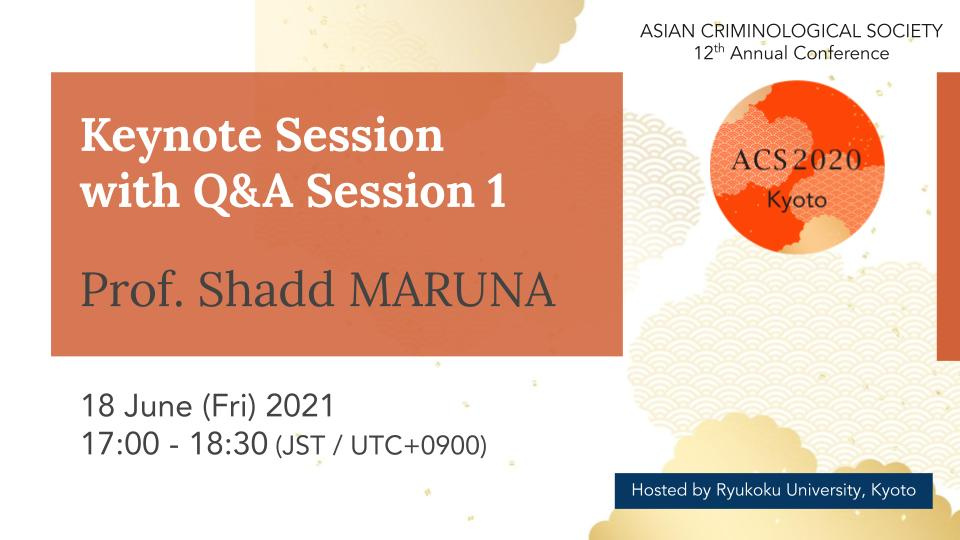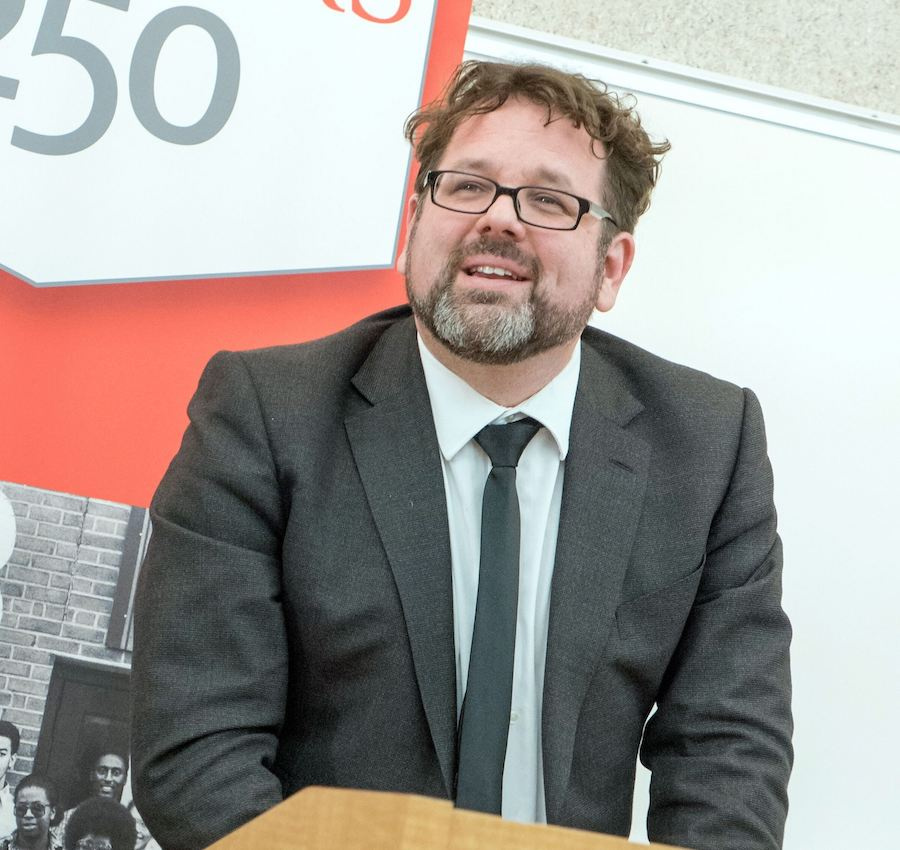2021.08.06
[Report of the ACS2020] Keynote Session with Q&A Session_Prof. Shadd Maruna
Rehabilitation and Prison Release during the Pandemic: Perspectives from British Prisons
The Asian Criminological Society 12th Annual Conference (ACS2020), hosted by Ryukoku University, was held online for four days from June 18 to 21, 2021. The purpose of the conference, the second of its kind to be held in Japan after the 2014 Osaka conference, was to promote the growth of criminology in Asia and Oceania, and to promote academic exchange with advanced regions of criminology such as the United States and Europe.
>> ACS2020 Program https://acs2020.org/program.html
The overall theme of the conference is "Crime and Punishment under Asian Cultures: Tradition and Innovation in Criminology". The aim was to promote understanding of the social systems and culture and measures against crime and delinquency in Japan, which is said to be "the country with the least crime in the world".
The following is a summary of the Keynote Session with Q&A Session, which was held live streaming at the conference.
- Keynote Speaker: Shadd Maruna (Professor, School of Social Sciences, Education and Social Work, Queen's University Belfast, UK)
- Chair: Masahiro Tsushima (Professor, Faculty of Sociology, Ryukoku University, Japan)
- Date: 17:00-18:30, 18 June, 2021
- Keywords: prison, COVID-19 pandemic, desistance


Shadd Maruna (Professor, School of Social Sciences, Education and Social Work, Queen's University Belfast, UK)
The past year has been enormously disruptive for all of society, but nowhere more so than in prisons, where all forms of face-to-face rehabilitative work have essentially ceased for almost the entirety of the pandemic in much of the UK. Drawing on one of the first research projects to be allowed inside British prisons since the lockdown began in March 2020, I will explore early evidence of what the outcomes of this tragic natural experiment have been on the lives of those in prison. This research, co-produced with the User Voice organisation, has sought to involve prisoners and ex-prisoners in every stage of the research process from design to data analysis and dissemination. The goal is to give a voice to one of the most overlooked and neglected populations during the pandemic.
Summary of the Q&A Session
Question 1: Could you provide details (e.g., purposes, methods, and expected results) of the ongoing prison survey during the COVID-19 pandemic, which was introduced in the keynote speech?
Answer 1: This is a research project funded by the Economic and Social Research Council (ESRC) of the UK as an urgent study during the pandemic. One purpose is to engage ex-prisoners in the planning, administration, and interpretation of a study of ex-prisoner release. Those who are involved in the research will learn the basics of research. The specific surveys include questionnaires, interviews, participant observation, and research journals (deciphering).
Question 2: This question is related to the question and answer above. Do you plan to link the results of the survey to a social movement, specifically to prison reform?
Answer 2: Yes, I do. Before the pandemic, the conditions in prisons were already terrible. Then they worsened with the spread of COVID-19, as prisons were locked down. However, in the process of social recovery after the pandemic, the need for the generation of new value norms will increase in prisons as well, and I believe that there is room to utilize the results of this research.
Question 3: Could you give us an introduction to the situation for ex-prisoners?
Answer 3: First of all, I would like to talk about the situation regarding the occurrence of crime during the pandemic. It is said that the crime rate including robbery is decreasing and domestic violence is increasing. In addition, it is difficult to provide services such as employment, education, and support meetings, which are essential for the social integration of ex-prisoners, due to the lockdown.
Question 4: The rehabilitation model proposed by Prof. Maruna seems to be influenced by labeling theory from the 1960s.
Answer 4: Yes, that has a strong influence. As K. Erickson says, once a stigma is attached to a person in society, it is not easy to remove, which is exactly the point. However, J. Braithwaite focused on the Japanese concept of shame (rather than stigma) and proposed that it could be applied to the desistance of ex-offenders by incorporating it into the rituals of social reintegration (apologizing and inclusion). My idea relies heavily on Braithwaite's theory.
Question 5: There seem to be two approaches to social movements regarding “the distance of ex-prisoners”. One is the so-called "power-over type," in which the person concerned shows hostility to society and changes the situation. The other is to break down the barrier between the person concerned and society by demonstrating new values, such as "recovery”. Which approach would you recommend to us?
Answer 5: The latter. This is the approach that I actually adopt. This is because it is important to break down the barriers between society and ex-prisoners. However, it is not necessarily a choice between the two, and as the history of social movements addressing LGBTQ and racial inequality shows, the former cannot be ruled out, as the people involved sometimes have to overcome anger and criticism (as an essential stage).